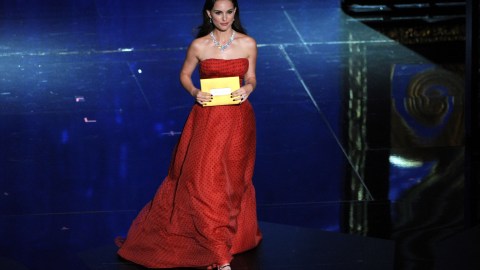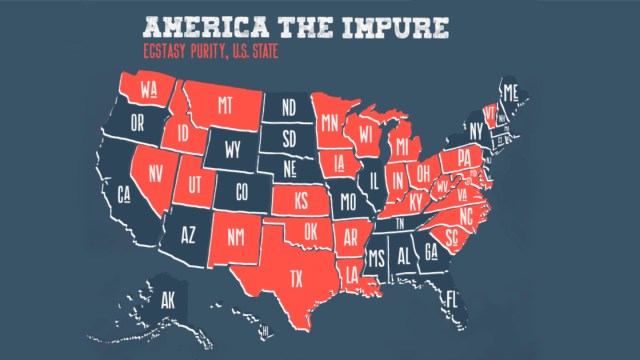Will there be controversy at this year’s Oscars?

Though her voice was nearly gone, Meryl Streep chose to use an opportunity at the 2017 Golden Globes ceremony to warn America about the dangers of the forthcoming president. While she was mocked by the Right as another Hollywood elite using her soapbox for liberal politics, Streep did not seem bothered by any potential controversy. She listed the many actors and actresses being celebrated who come from other nations, reaching a crescendo of sentiment here:
“This instinct to humiliate, when it’s modeled by someone in the public platform, by someone powerful, it filters down into everybody’s life, because it kinda gives permission for other people to do the same thing. Disrespect invites disrespect, violence incites violence. And when the powerful use their position to bully others we all lose.”
When the 90th Academy Awards air on Sunday, March 4, there is likely to be plenty of controversies: the state of the nation, the #MeToo movement, gun legislation, lingering feelings on #OscarsSoWhite. There has already been a growing backlash to a number of films nominated for Best Picture. Everyone is one edge these days, and the Arts make a perfect target to unleash pent-up fury.
But the Arts also offers an ideal platform for important voices to express discontent and spread inspiration. Elizabeth Warren recently used her position to rail against President Trump’s racist remarks regarding Native Americans, but in 1972 Marlon Brando had Sacheen Littlefeathertake the stage on his behalf to decline his Oscar as Best Actor (for “The Godfather”) due to “the treatment of American Indians today by the film industry and on television in movie reruns.”
Brando wasn’t the only one to use that particular stage for highlighting our sordid relationship with the original inhabitants of this land. In 2016, Leonardo DiCaprio accepted the same award for his role in “The Revenant,” though in so doing said, “I want to share this award with all the first nation’s people represented in this film and all the indigenous communities around the world. It is time that we recognize your history.”
Halle Berry accepted her Oscar in 2002 for Best Actress—the first black woman to achieve this honor—after appearing in “Monster’s Ball,” using this opportunity to discuss a topic that would not be far afield from #OscarsSoWhite over a decade later: “This moment is so much bigger than me. This is for every nameless, faceless woman of color that now has a chance because this door has opened.”
Berry was met largely with cheers (and quite a few tears), though that’s not always the case. Littlefeather was initially booed when announcing that Brando would not be accepting his Oscar. While Vanessa Redgrave was cheered when she won Best Actress for portraying an anti-Nazi activist in “Julia,” she had also received much criticism for producing a pro-Palestine documentary, “The Palestinian.” When she criticized “Zionist hoodlums” during her 1978 speech, boos were immediate.
Michael Moore has never been known for staying silent, and when he won his first Oscar in 2003 for “Bowling for Columbine,” he used his time to denounce the Bush administration, calling him a “fictitious president.” A mixed reaction from the crowd was pre-empted by the music, which the committee felt compelled to blast while Moore was still speaking.
Sometimes the actor receiving the honor is the source of controversy. Such was the case in 1999 when Greek-American actor and director Elia Kazan was handed a lifetime achievement award. While hugely influential on the craft of acting, Kazan ratted on Communist friends during a 1952 testimony in front of the House Un-American Activities Committee, a witch hunt invented in 1938 by Joseph McCarthy that served to spy on (and blacklist) American citizens.
Immigration is one of the most heated topics in America today. It would not surprise anyone if the topic makes an appearance during this year’s ceremonies. In 2012, Natalie Portman reminded the audience that nominee Demián Bichir played an “undocumented immigrant” in “A Better Life.”
Civil rights is not a new topic for this stage: in 1974, gay rights activist David Opel streaked behind David Niven while he was talking; twenty-five years later, Sean Penn, accepting an Oscar for his stunning performance as gay rights icon Harvey Milk, discussed the topic of “Milk” more broadly:
“I think that it is a good time for those who voted for the ban against gay marriage to sit and reflect and anticipate their great shame and the shame in their grandchildren’s eyes if they continue that way of support. We’ve got to have equal rights for everyone.”
Given the current climate of our nation, this year’s Oscars is certain to produce plenty of impassioned speeches. Considering we’ve just experienced yet another mass school shooting in Florida, it would be hard to imagine someone not taking the opportunity to push for much-needed reform in our laws. Regardless of your feelings on the subjects to be discussed, one thing is certain: we’ll be listening.
—
Derek Beres is the author of Whole Motion and creator of Clarity: Anxiety Reduction for Optimal Health. Based in Los Angeles, he is working on a new book about spiritual consumerism. Stay in touch on Facebook and Twitter.





